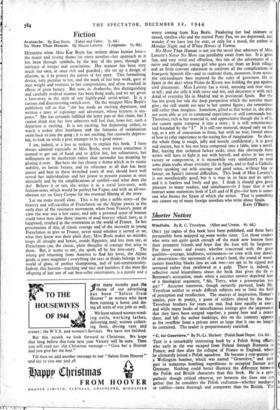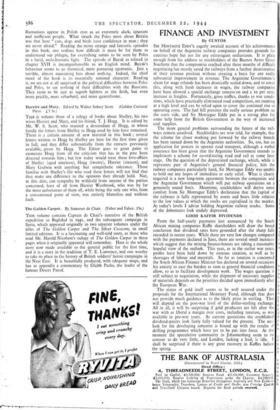G. for Genevieve." By Fl. - Lt. Herbert. (Polish Book Depot. I
Is. 6d.
THIS is a remarkably interesting book by a Polish flying officer, who early in the war escaped from Poland through Rumania to France, and then after the collapse of France to England, where he ultimately joined a Polish squadron. He became a rear-gunner in a Wellington bomber, which was named " Genevieve," and tool; part in numerous bombing expeditions to occupied Europe and Germany. Nothing could better illustrate the difference between the Polish and British characters than this book. He is a sym- pathetic though critical observer, yet between the lines one cm gather that ,he considers the Polish craftsman—whether mechanic or cobbler—more thorough and competent than the British. The
Rumanians appear in Polish eyes as an extremely slack; ignorant and inefficient people. What struck the Poles most about Britain was that here " cats, dogs and birds have confidence in man ; they are never afraid." Reading the many strange and fantastic episodes in this book, one realises how difficult it must be for them to understand our phlegm, for everything seems to be. seen by Poles in a lurid, melodramatic light. The episode of Buyak as related in chapter XVII is incomprehensible to an English mind. Buyak's behaviour seems to us theatrical, mere posturing egomania. Just a terrible, almost nauseating fuss about nothing. Indeed, the chief merit of the book is its essentially national character. Reading it, we are not at all surprised at the political difficulties between Poles and Poles, to say nothing of their difficulties with the Russians. They seem to be just as superb fighters as the Irish, but even more prickly, more rebarbatif, and more quarrelsome.



























 Previous page
Previous page